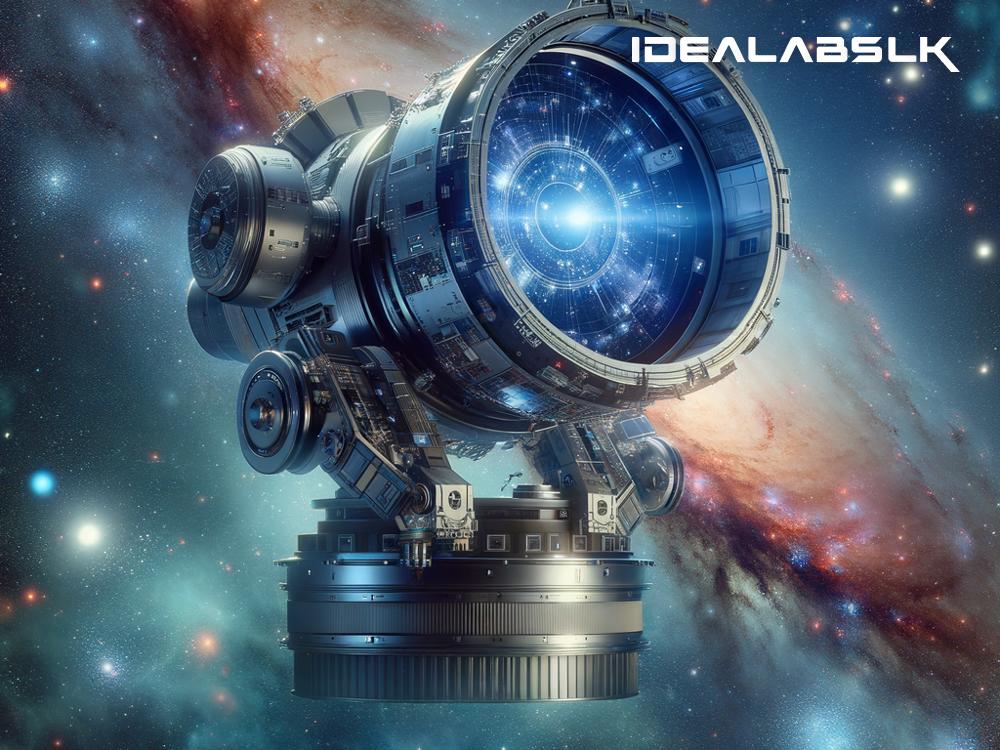Title: The Future is Now: AI-Powered Space Telescopes and the Cosmic Revolution
Imagine you had a super smart friend who could look far into the space and tell you secrets about stars, planets, and galaxies billions of light years away. Now imagine that this friend is getting an upgrade - a big one. This is what’s happening in the world of astronomy with the advent of AI-powered space telescopes. By the year 2025, our understanding of the universe is set to undergo a monumental transformation, all thanks to the integration of Artificial Intelligence (AI) with space exploration tools.
First of all, let's break down what we're talking about. Space telescopes are like the Hubble Space Telescope, which orbits Earth and gives us incredibly detailed images of outer space, far beyond what telescopes on Earth can see. AI, on the other hand, refers to the intelligence demonstrated by machines, enabling them to learn from data and make decisions or predictions.
So, what happens when these two powerful tools join forces? The answer is, we revolutionize our understanding of the universe in ways we previously only dreamt of.
A Glimpse into the Future: AI in Space Telescopes
By 2025, AI-powered space telescopes will likely be our primary window into the vast mysteries of the cosmos. Unlike traditional space telescopes, which require humans to analyze and interpret the endless streams of data they collect, AI-enabled telescopes can process and understand this information almost in real-time. This means we get to discover and learn about new stars, exoplanets, and galaxies at an unprecedented pace.
The AI Advantage
The primary advantage of integrating AI with space telescopes is efficiency. Space is unimaginably vast and filled with data waiting to be discovered. AI can sift through this data much faster than humans, identifying patterns and making connections that might take human researchers years to uncover. For instance, AI algorithms can quickly scan images for specific stellar phenomena or classify galaxies based on their shapes and sizes, tasks that are both time-consuming and prone to human error.
Moreover, AI can predict where and when to look. By learning from past observations, AI models can suggest where space telescopes should point next, maximizing the chances of discovering something groundbreaking. This intelligent scheduling significantly enhances the productivity of space missions, ensuring that every moment and every bit of data collected counts.
Breaking New Grounds
The James Webb Space Telescope (JWST), launched in late 2021, offers a glimpse into this future. While not solely dependent on AI, its missions are set to benefit enormously from AI technologies. By applying AI to JWST's observations, scientists hope to uncover secrets of the early universe much quicker than they could through manual analysis alone.
Looking ahead to 2025 and beyond, we’re likely to see the launch of fully AI-operated space telescopes. These telescopes will not only collect data but also analyze and make decisions on where to look next, without needing to wait for instructions from Earth. Imagine a space telescope autonomously exploring the universe, seeking out the birth of new stars, watching planets form, and even hunting for signs of extraterrestrial life. This is not science fiction; it’s the near future.
What This Means for Us
The implications of AI-powered space telescopes are vast, not only for scientists but for humanity as a whole. As we uncover more about the universe, we gain valuable insights into our place within it. We learn about the history of the cosmos, the potential for life beyond Earth, and the future of our own planet.
Furthermore, these discoveries have the potential to inspire countless generations to come. Just as the Moon landing in 1969 inspired a generation of scientists, engineers, and dreamers, the discoveries made by AI-powered space telescopes could ignite the imaginations of people around the world, encouraging them to dream big and look up.
Conclusion
By 2025, AI-powered space telescopes will likely have begun to revolutionize our understanding of the universe. Through unmatched efficiency and the ability to autonomously explore the cosmos, these intelligent tools will accelerate our quest for knowledge and uncover secrets of the universe at an unprecedented pace. The future of space exploration is bright, and it's powered by AI. As we stand on the brink of this new era, one thing is clear: we're not just exploring space; we're redefining what's possible.

